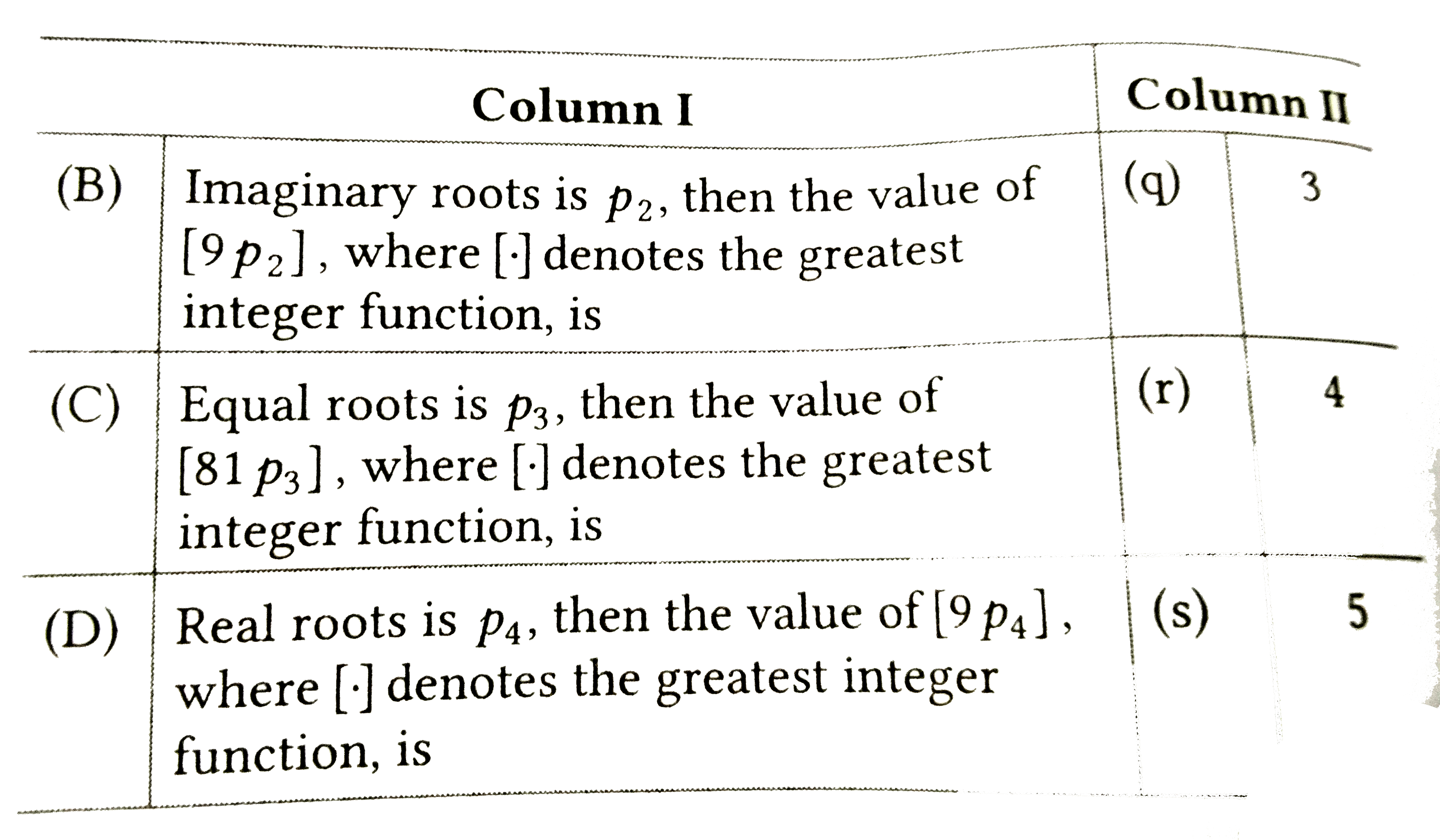Two numbers a,b are chosen from the set of integers 1, ,2 3, ..., 39. Then probability that he equation 7a−9b=0 is satisfied is 1/247 b. 2/247 c. 4/741 d. 5/741
To solve the problem, we need to find the probability that the equation 7a−9b=0 is satisfied when two numbers a and b are chosen from the set of integers {1,2,3,…,39}.
1. Understanding the Equation:
The equation 7a−9b=0 can be rearranged to:
7a=9b⇒ab=97
This means that a must be a multiple of 9 and b must be a multiple of 7.
2. Finding Possible Values of a and b:
- The multiples of 9 within the range of 1 to 39 are:
- 9×1=9
- 9×2=18
- 9×3=27
- 9×4=36
- The multiples of 7 within the range of 1 to 39 are:
- 7×1=7
- 7×2=14
- 7×3=21
- 7×4=28
- 7×5=35
3. Finding Pairs (a,b):
We need to find pairs (a,b) such that ab=97. This can be expressed as:
a=97b
To find integer values for a and b:
- For b=7, a=9
- For b=14, a=18
- For b=21, a=27
- For b=28, a=36
Thus, the valid pairs (a,b) are:
- (9,7)
- (18,14)
- (27,21)
- (36,28)
4. Counting Favorable Outcomes:
We found 4 pairs that satisfy the equation.
5. Total Outcomes:
The total number of ways to choose 2 numbers from 39 is given by the combination formula (nr):
Total outcomes=(392)=39×382=741
6. Calculating the Probability:
The probability P that the equation 7a−9b=0 is satisfied is given by:
P=Number of favorable outcomesTotal outcomes=4741
Final Answer:
The probability that the equation 7a−9b=0 is satisfied is 4741.
The equation 7a−9b=0 can be rearranged to:
7a=9b⇒ab=97
This means that a must be a multiple of 9 and b must be a multiple of 7.
- The multiples of 9 within the range of 1 to 39 are:
- 9×1=9
- 9×2=18
- 9×3=27
- 9×4=36
- The multiples of 7 within the range of 1 to 39 are:
- 7×1=7
- 7×2=14
- 7×3=21
- 7×4=28
- 7×5=35
We need to find pairs (a,b) such that ab=97. This can be expressed as:
a=97b
To find integer values for a and b:
- For b=7, a=9
- For b=14, a=18
- For b=21, a=27
- For b=28, a=36
- (9,7)
- (18,14)
- (27,21)
- (36,28)
We found 4 pairs that satisfy the equation.
The total number of ways to choose 2 numbers from 39 is given by the combination formula (nr):
Total outcomes=(392)=39×382=741
The probability P that the equation 7a−9b=0 is satisfied is given by:
P=Number of favorable outcomesTotal outcomes=4741
The probability that the equation 7a−9b=0 is satisfied is 4741.
Similar Questions
Two numbers a and b are chosen at random from the set {1,2,3,..,3n}. The probability that a3+b3 is divisible by 3, is
View SolutionTwo numbers a and b are chosen at random from the set {1,2,3,4,...,0} with replacement. The probability that the equation x2+√2(a−b)x+b=0 has


View SolutionTwo integers xandy are chosen with replacement out of the set {0,1,,2,3,.....10}. Then find the probability that |x−y|>5.
View SolutionTwo integers xandy are chosen with replacement out of the set {0,1,,2,3,10}. Then find the probability that |x−y|>5.
View SolutionTwo numbers xandy are chosen at random (without replacement) from among the numbers 1,2,3,2004. The probability that x3+y3 is divisible by 3 is (a) 13 (b) 23 (c) 16 (d) 14
View SolutionIf two distinct numbers a and be are selected from the set {51,52,53……….59}, then the probability that logab is an integer is
View SolutionTwo numbers a and b are selected successively without replacement in that order from the integers 1 to 10.The probability that ab is an integer, is
View SolutionA number x is chosen at random from the numbers −3, −2, −1, 0, 1, 2, 3 the probability that |x|<2 is 57 (b) 27 (c) 37 (d) 17
View SolutionThree integers are chosen at random from the set of first 20 natural numbers. The chance that their product is a multiple of 3 is 194/285 b. 1/57 c. 13/19 d. 3/4
View SolutionTwo numbers b and c are chosen at random with replacement from the numbers 1, 2, 3, 4, 5, 6, 7, 8 and 9. Find the probability that x2+bx+c>0 for all x∈R.
View Solution
